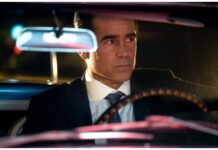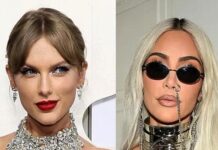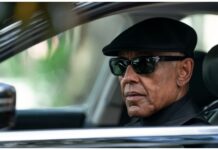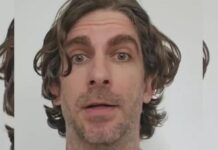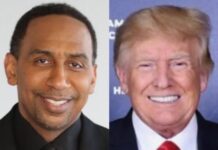*From Emmy-winning, nonprofit cable television channel and digital network, BRIC TV, the podcast “Brooklyn, USA” is back for a sixth season, which takes an in-depth look at six different languages spoken in Brooklyn and showcases the ways in which Brooklynites build community through language, per press release. Watch the trailer above.
This season illustrates how these native dialects have survived because of the people in Brooklyn passing down their traditions and legacies.
We caught up with one of the series producers, Shirin Barghi, to dish about the process behind curating the non-fiction digital series that delivers a thematic mix of short documentary, local journalism, personal narratives, sound art, poetry, and audiovisual experimentation.
Check out our Q&A below.
OTHER NEWS: Women’s History Month: California Org Honors Leaders, Discusses Priorities
Over 700 languages and dialects are spoken in NYC – making it the most linguistically diverse urban center in the world. This season, the Brooklyn USA podcast is looking at how Brooklyn builds community through language. pic.twitter.com/zppkxPOUm5
— BRIC TV (@BRICTV) February 3, 2022
Talk a little bit about the inspiration behind Brooklyn, USA.
Shirin Barghi: Brooklyn, USA is a biweekly podcast. It blends short documentary, hyperlocal journalism, personal narratives, sound art and audiovisual experimentation. Our main aim is to reflect the diversity and beauty of our borough, Brooklyn, and New York. We deliver New York stories, told by the people… because there’s a lot of projects out there who really treat people as just stories and just that, like the whole voice of the voiceless narrative. But we don’t look at it that way. We really want our community to tell the story and cover the issues that impact them, in their own voice.
New York City and Brooklyn [are] one of the most linguistically diverse parts of the world. In this series, our first episode, we spoke with Ross Perlin, who is one of the co-founders of the Endangered Language Alliance. Ross told us that there are about 700 languages and dialects spoken in New York City. Which, actually makes it the most linguistically diverse urban center in the world. In this season, we look at how Brooklyn builds community through language. We focused on everyone from artists, whose language is in music, musical instruments, to religious practitioners. Who speak of an endangered language, and are fighting to keep it alive. And to activists, who are trying to preserve languages.
Around 80% of the words in the English dictionary are borrowed from other languages. In this #BKUSA episode, musician Karim Douaidy reflects on the linguistic crossover between Arabic & English, two languages thought to have little in common.
Listen now @ https://t.co/SdiFzKY22t pic.twitter.com/PctgWa0hHc
— BRIC TV (@BRICTV) March 8, 2022
Did you learn anything surprising about the history of these languages?
I was very shocked to hear that New York City is the most linguistically diverse country in the world. I’m originally I’m from Tehran, Iran. I’m not from this country and I thought that there are other parts of the world, like in Asia, where I’m from, that are more linguistically diverse. So that was a big, surprising thing. If you haven’t seen this amazing interactive language map that the Endangered Language Alliance has basically dedicated a lot of resources and a lot of time documenting, the 700 language varieties at over 1200 significant sites. I really recommend you take a look at that. It’s just amazing.
They’re all these languages. I’m from, again, Iran. I didn’t realize that there’s the Judeo-Persian language specific to Persian Jews. That, up in Queens there’s a community speaking that. So, yes. It’s a really beautiful journey. I grew up bilingual myself and I feel like growing up bilingual really shaped the person I am today. I feel like it was interesting hearing other folks who spoke to us, who talked about the way being bilingual shaped them.
What do you hope audiences take away from this series?
I guess one takeaway is that languages are a part of us, viscerally, intimately connected to our thoughts and feelings, and the ways we are in the world. The struggle to keep our mother tongue or our language alive is connected to so many things.
This podcast highlights how the cultural languages are different but the shared struggles are similar.
That is absolutely correct. I’m from Tehran, Iran. But my mother tongue is Persian or Farsi. I also partly grew up in the UK. So again, I grew up bilingual and I feel like growing up bilingual for me personally feels like getting energy from two different life sources. I feel like Farsi, my native tongue, and English. It’s kind of like the sun and moon. Which, is great. But sometimes it also pulls at you like tides and there’s this tug of war. They sometimes compliment each other, but sometimes they’re at war with each other. I feel a lot of bilingual listeners, this might resonate with them.
Like your speaking one language, but then you think of a word and the only way that word comes to your mind, is in your mother’s tongue. And it’s like vice versa. And, sometimes it makes you feel like a superhero, but it sometimes makes you feel like you’re not enough, because of this in-between space you occupy. So, for me personally, it’s something that’s really close to my heart. In my native Iran, there’s many local languages that are constantly being suppressed. There are communities that had to fight to speak their language.
On the #BKUSA podcast, we’re celebrating Brooklyn’s linguistic diversity. We spoke with NY-based linguist, and co-director of the Endangered Language Alliance, @RossPerlin, a nonprofit whose mission is to document and support endangered languages. https://t.co/SdiFzKY22t pic.twitter.com/4ARfw5Ek4W
— BRIC TV (@BRICTV) February 9, 2022
Is there one episode that you’re most excited about audiences experiencing?
I really loved all of our episodes. I loved the Arabic language episode because it talked about the evolution of English over the centuries and how it’s remained fluid and allowing new words to be invented and accepted. Every episode sounds so different from the next one. Because we really worked with community producers and each community producer brought their own community, their own flavor, their own languages. And they really drew inspiration from that to create these narratives.
I could walk you through the different languages that we focused on. I feel BRIC House, where we’re based, it’s basically located at an intersection point of all these linguistically diverse neighborhoods. So, if you walk down Fulton Street, you’ll have communities speaking West African written languages, like Pulaar or Fulani. Which, is one of the languages that we focus on in this season. If you’re walking down Flat Bush, towards the east, Crown Heights, Little Caribbean. Further down, you have, again, very rich linguistically where you have Caribbean communities speaking their languages.
Then further down Kensington, there’s a strong concentration of Bengali or Bangla speakers, and that was the topic of another episode. Where we talked about the Bangal language and the rich history of the fight, the Bengali language movement, which was the fight to preserve this language in the face of colonialism and the hegemony of the older language. And how that fight actually led to February 21st being known as International Language Day by UNESCO. So, this is just a little overview of our season and the different episodes.
This series highlights how languages build authentic relationships and sustain a sense of community.
Especially in this time where there’s so much happening in the world and folks are turning to their community and their family and friends more than ever for love and support. And I love that this series highlights how language fosters that and creates that sense of community.
The series may leave you asking: What does community mean to me?
… it just made me think of something, that throughout this series, what you lose with a loss of linguistic diversity and of every individual language is so substantial. It’s knowledge about history. It’s about migration. It’s about, as you mentioned, culture knowledge. Its oral literature, its verbal arts. It’s stuff about ecology. I feel the basis of linguistics and especially these smaller languages that we fight to preserve, form the basis of our understanding about languages.
To learn more about “Brookly, USA” visit BRIC TV.
We Publish News 24/7. Don’t Miss A Story. Click HERE to SUBSCRIBE to Our Newsletter Now!

